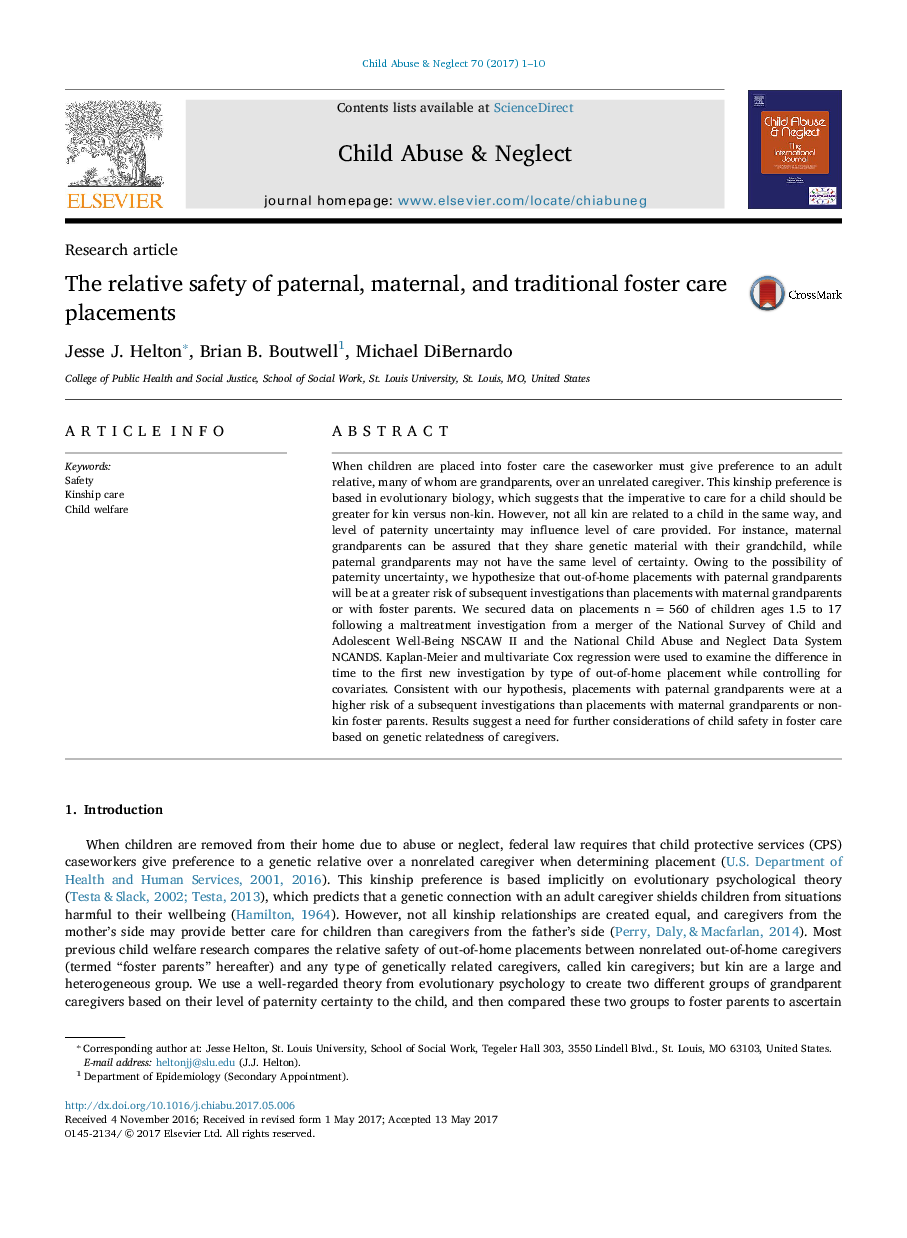ترجمه فارسی عنوان مقاله
امنیت نسبی تسهیلات مراقبت از پدر و مادر، مادر و سنتی
عنوان انگلیسی
The relative safety of paternal, maternal, and traditional foster care placements
| کد مقاله | سال انتشار | تعداد صفحات مقاله انگلیسی |
|---|---|---|
| 130132 | 2017 | 10 صفحه PDF |
منبع

Publisher : Elsevier - Science Direct (الزویر - ساینس دایرکت)
Journal : Child Abuse & Neglect, Volume 70, August 2017, Pages 1-10
ترجمه کلمات کلیدی
ایمنی، مراقبت زناشویی، رفاه کودکان،
کلمات کلیدی انگلیسی
Safety; Kinship care; Child welfare;

